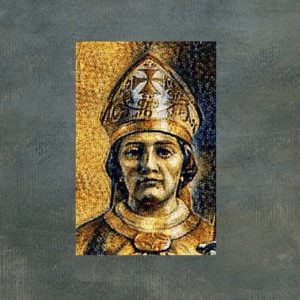Get out your symbols: April is here, and that means it’s Autism SOMETHING Month. One pass over social media affirms that April is [choose one] Autism: Awareness-Acceptance-Celebration-Heavy Marketing-Conference Planning -Token Mentioning-Gross Misunderstanding-Online Arguing-No Two People Say or Feel The Same Way About It …. Month.
We see light bulbs, puzzle pieces, infinity symbols, rainbows, profiles shaded blue, profiles shaded red, profiles sparkling gold, the periodic table symbol Âû augmented with ctrl+shift+^… and a few more I’ve probably forgotten.
We hear autism called: a condition, a disorder, a disease, a way of being, a superpower, a neurotype, a diversity.
We see meme after meme telling us what autism is and what autistic people need… followed by explainers about what NOT to say, what NOT to do, and how NOT to help autistic people. How many are written by autistics, and how many are written about autistics?
As an autistic person / person with autism / Aspie, and a parent of autistic kids (with whom I have checked and are okay with me saying that in a blog post), and a person with a degree in school psychology, I admit – maybe peculiarly – that I am overwhelmed by the fluctuations in rules and algorithms of reference, to the point where I’d rather be silent than risk saying the wrong thing. Yet, I get why it’s like this. I know how this storm originated, and I wait for the year the world declares recess on the shouting matches April brings. Rightly, autistic people (like me) are tired of being told we need to adapt to the clinical consensus of what “typical” people ought to look like. This model has dominated psychology for some time, but anyone recalling the history of the study of psychology will see that the discipline itself marches forward in phases which last as long as they fit the prevailing thought of the time. Psychology as a discipline has some downright embarrassing moments in what we have promoted during different stages in the field. Eventually, better-informed ideas appear in the literature, and what we held as dogma for many years gets jettisoned for what is, hopefully, better dogma in years to come.
The over-arching problem is that autism has never been well understood. Even autistics have difficulty making sense of why we do what we do, but the one thing we know is that we are not defective. But in terms of the clinical disciplines, autism remains a puzzle to non-autistics, warranting fretful study and treatment, and giving rise to terms suggesting we are disordered, diseased, trapped, suffering and in need of intervention. Parents who hear doctors describe autism as something urgent and critical to treat assimilate this as a “disorder” without taking much time to question that angle. Pair that with the daily task of trying to help a sensory-overloaded child not yet able to explain what’s happening, and parents are all the more susceptible to adopting battle-mindset to combat their imagined worst-case scenarios. Good? Bad? Right? Wrong? We can look back and see where that mindset has been detrimental to both children and parents, but we can’t fully accuse parents of ableism when this is how we have been taught to see autism. Entire generations of people have been immersed in this way of thinking. That is not going to disappear overnight, nor can all the rallying images of puzzle pieces be instantly obliterated, even as we realize that, for some, these symbols remind us how we have been treated like “puzzles” who don’t quite fit into the rest of humanity.
I risk being very unpopular for holding the belief that we do better to be clear, gentle and compassionate in our assumptions than to battle back with fury. I know that runs the risk of enabling those who truly refuse to see autism as anything but an aberration, but I genuinely think more people than not are open to considering the advances we have made in knowing what autism is, and what it is not, over the past few decades. What if most puzzle-piece wearing people never realized we might feel hurt by seeing that? Those who double down and insist on keeping it prove themselves loyal to their slogans more than the people in front of them, which ends our hope right there; but some, I’m guessing, will express surprise and regret. For some, the puzzle piece represents a commitment to understanding our point of view, which we well know can be a genuine “puzzle” to non-autistics. To those, the puzzle piece was directed inward, not outward. But, how are we to know which is which? Maybe what we need is Autism Amnesty Month, to talk about and sort out all of this before the next batch of offending t-shirts starts printing again.
Lest I be said to be inauthentic, I truly do speak from both sides. I completed graduate school in the late 1990s, when protocols and treatment plans still centered around Lovaas’ ABA technique and goals were still written such that autistic children would one day be indistinguishable from their typical, same-age peers. I myself was raised to believe my number one job was to suppress, mask and conform, and when I did that well, I received multiple awards and copious praise. I have now come to see that masking erodes my physical and emotional health, and have had to employ therapy techniques myself for recognizing and refraining from these habits while learning how to be autistic, unplugged and needy, in every aspect of my life. It is as much work as it was learning to mask in the first place. Many times, I slip and use the old terms I committed to memory back in my early career. I notice myself using the wrong terminology especially when I feel too tired or anxious to pause and speak more accurately. I am not an ableist. I am an imperfect human being, in need of patience and forgiveness. As such, I try extend that same amnesty to others in my path: Not everyone is an ableist. Many are imperfectly trying to understand better, after years of being fed only incorrect information about autism.
We are in the concluding days of Lent, where the public ministry of Jesus is coming to a dramatic end. His message has been missed by the elders and authorities, who rigidly adhere to what they know and have been taught, refusing to consider that there might be a way of seeing salvation that is completely different from their expectations and conditioning. Rather than shouting them down, Jesus remains gentle, and silent, and asks God to forgive their rigidity and misconceptions… trusting that God’s justice flows not from violence, but from mercy.
I’m not suggesting autistics remain silent about what we know is true, and I’m not against correcting misconceptions and manners of reference which, knowingly or unknowingly, diminish our dignity and value as human beings. I am, however, wishing this could be done in less confrontational and hostile ways. I don’t mean harm against myself or my fellow autistics if I slip and say “disorder,” as it’s still called that in the diagnostic literature. On a weary day, I might talk about the challenges of being anxious and sensory-overloaded more than the gifts of being perceptive, thinking outside the box and committed to my causes, which could give others the impression that autism is a condition to pity or cure. Sadly, in acting to correct the seemingly ableist majority, autistics often employ the same techniques we are asking non-autistics to stop using with us… perhaps, ironically, because that was how we were conditioned by those driven to make us seem more normal. Mea culpa. But let’s not stop there.
Perhaps April will eventually become Neurodiversity Month, fostering the idea that we’re all part of the same humanity, and we all have a great deal to learn together, neurotypical and autistic alike. Idealistic? Yes. But that’s how my autism speaks.









